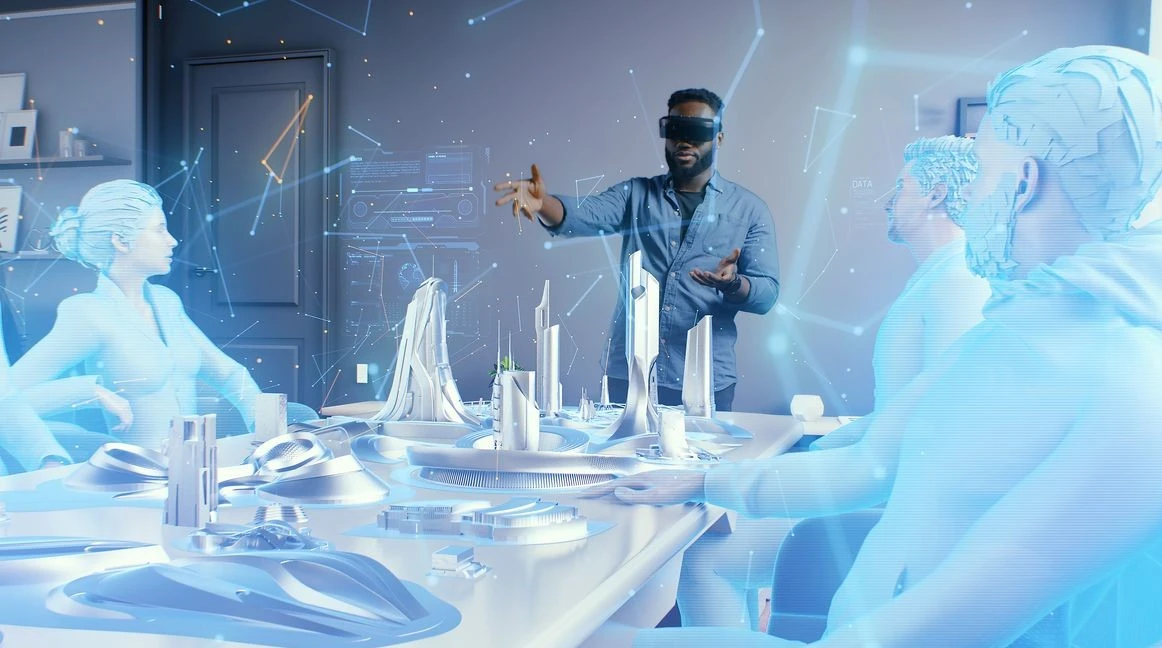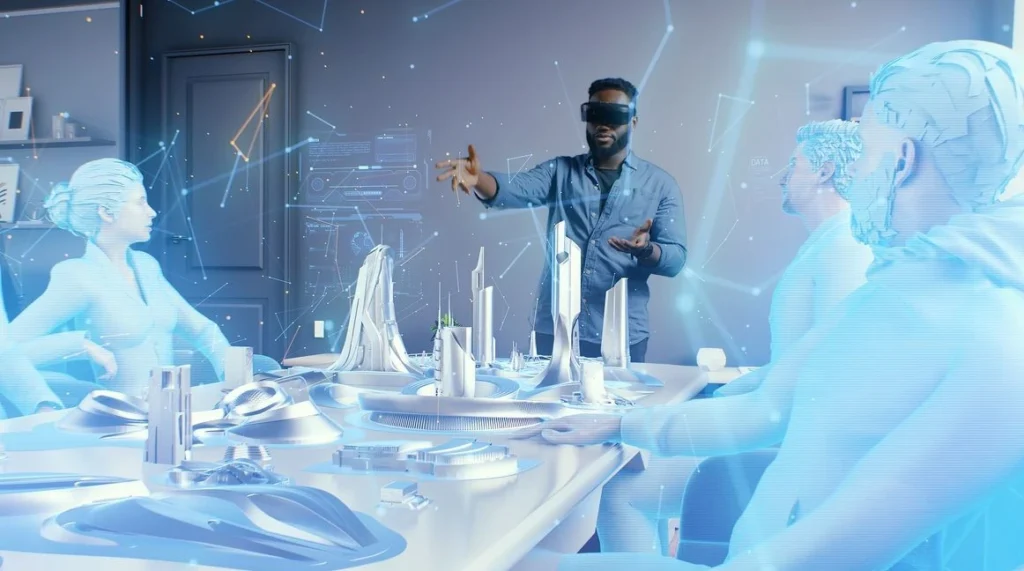Physical Address
304 North Cardinal St.
Dorchester Center, MA 02124


The metaverse. It’s a term that’s buzzing in tech circles and beyond, and it represents a potentially revolutionary shift in how we interact with technology and with each other. But what exactly is the metaverse, and what does it mean for businesses? This exploration will delve into the metaverse landscape, its impact on various industries, and the exciting opportunities it presents for forward-thinking companies.
While definitions are still evolving, the metaverse can be broadly described as a network of interconnected, persistent, immersive 3D virtual worlds. It’s a digital realm where users can interact with each other, with digital objects, and with brands in entirely new ways. Think of it as a blend of virtual reality (VR), augmented reality (AR), social media, and online gaming, all rolled into one. It’s more than just a virtual world; it’s a new way to experience digital interaction.
Several key characteristics define the metaverse experience:
The metaverse presents a wide range of opportunities for businesses across various industries:
Creating immersive shopping experiences, virtual showrooms, and personalized product demonstrations. Imagine trying on clothes virtually or exploring a digital furniture showroom.
Engaging with consumers in new and interactive ways, hosting virtual events, and creating branded experiences. Brands can reach new audiences in the metaverse.
Developing immersive games, virtual concerts, and interactive entertainment experiences. The metaverse offers new avenues for entertainment.
Creating virtual learning environments, simulations, and interactive training programs. The metaverse can make learning more engaging and effective.
Facilitating virtual meetings, conferences, and collaborative workspaces. The metaverse can enhance remote work and collaboration.
Developing and selling virtual land, creating virtual properties, and offering virtual tours. The concept of virtual real estate is emerging in the metaverse.
Using the metaverse for virtual prototyping, design collaboration, and training. Manufacturers can leverage the metaverse for improved efficiency.
Here are some concrete examples of how businesses are using the metaverse:
While the metaverse offers exciting possibilities, there are also challenges to consider:
Ensuring that the metaverse is accessible to everyone, regardless of their technological capabilities or socioeconomic status.
Protecting user data and ensuring the security of virtual transactions.
Creating a seamless and interconnected metaverse experience across different platforms and virtual worlds.
Addressing the ethical implications of virtual identities, virtual economies, and social interactions in the metaverse.
The metaverse is still in its early stages of development, but its potential to transform business is immense. As the technology matures and adoption increases, businesses that embrace the metaverse will be well-positioned to connect with customers, drive growth, and shape the future of commerce. The metaverse is poised to become a significant part of the digital landscape.
What industry do you think will be most disrupted by the metaverse? Share your predictions in the comments below! Let’s discuss the future of the metaverse and its impact on business.
